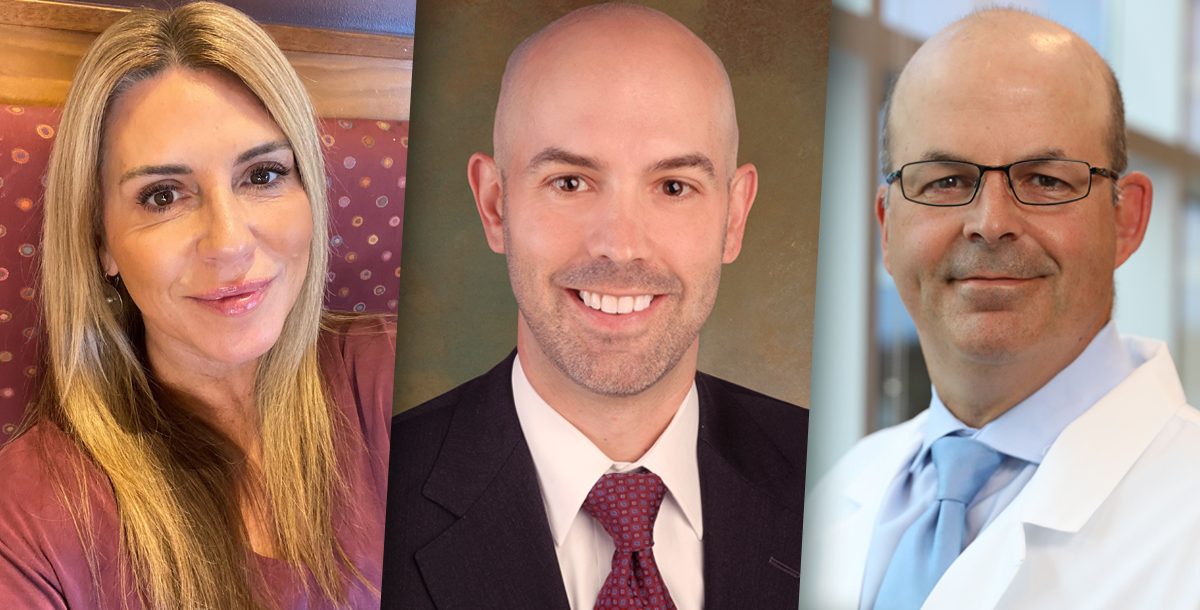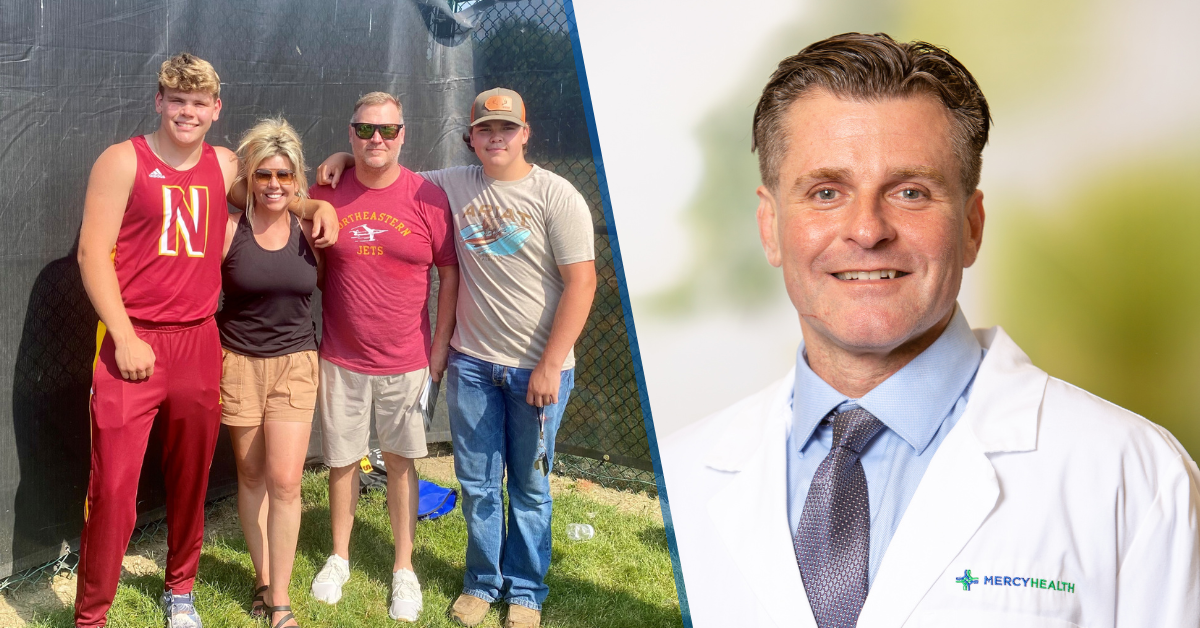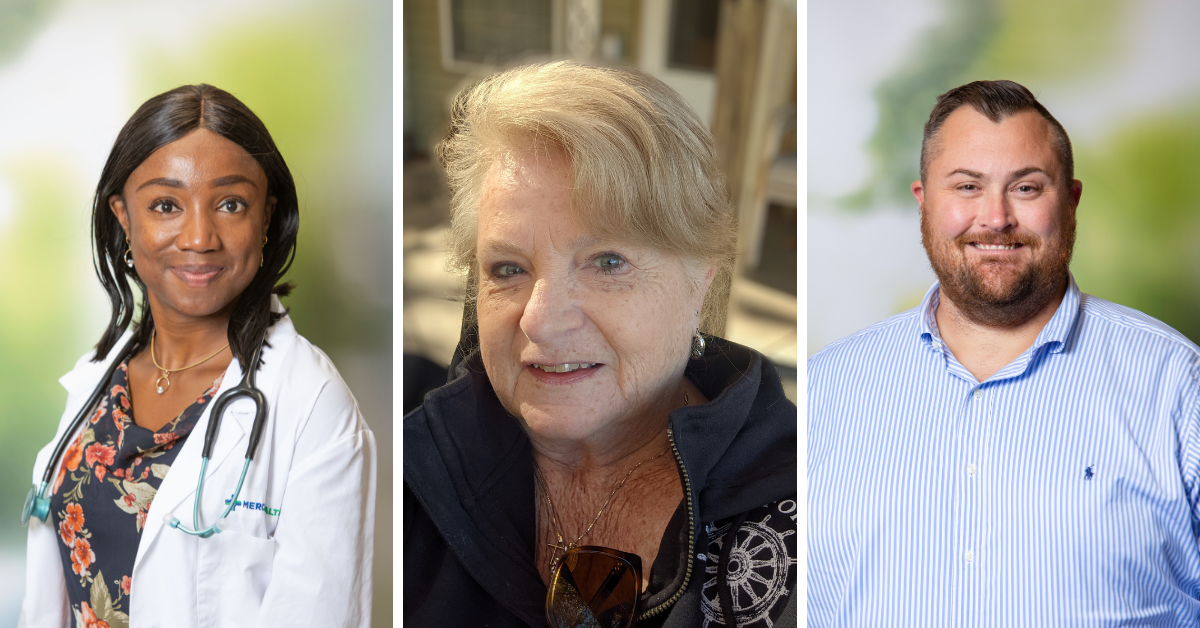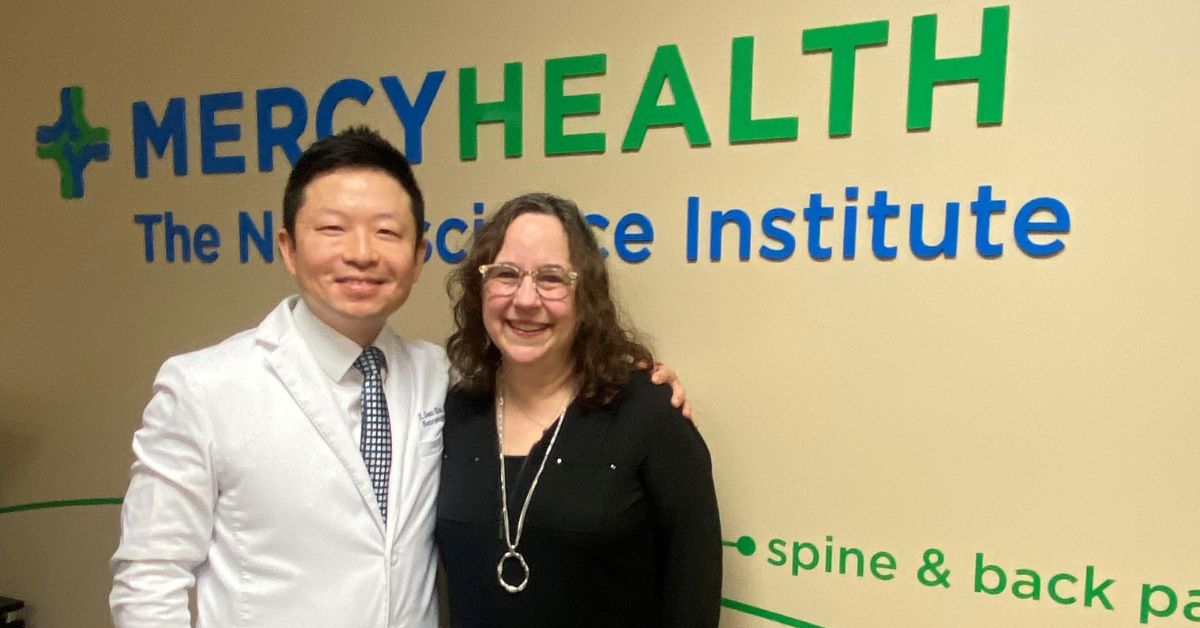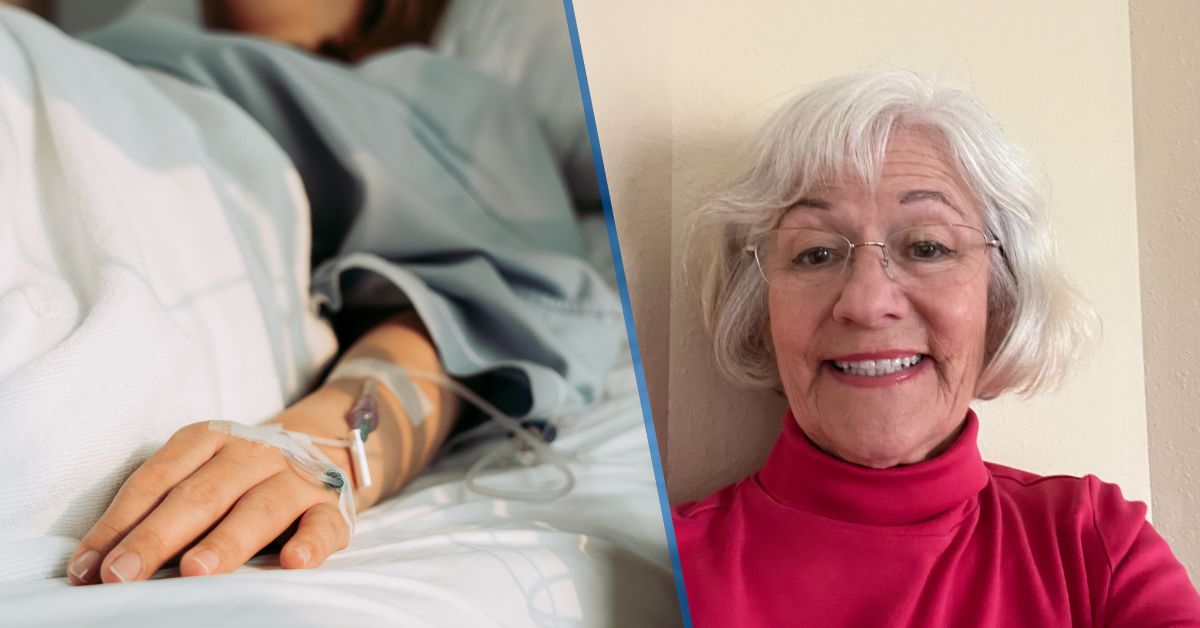In 2015, Heather Chapman’s doctor told her that her tonsils were huge and that she’d likely need to have them removed at some point. Five years later, when she started to experience bad headaches and feel lightheaded, she assumed that time had come.
Heather (pictured above, left) visited an ear, nose and throat doctor at Mercy Health – Fairfield Hospital who found that her tonsils were not, in fact, huge. Instead, something was pressing on them, making them look larger than they were. On his orders, Heather had a CAT scan and based on the findings, she then underwent a fine needle biopsy.
Two days later, on her birthday, the doctor called to let Heather know that she had a benign, very rare tumor called a paraganglioma.
Classed as a neuroendocrine tumor, paragangliomas form from a nerve cell, called a chromaffin cell, and they can secrete hormones that cause headaches and other symptoms. Most ENTs have never seen one before. So, for Heather, having the right doctor to care for her was going to be important.
“I was referred to Dr. Lee Zimmer, the director of otolaryngology for Mercy Health, and I immediately fell in love with him,” Heather recalls. “He was prepared and had already texted a neuro-otologist as well as Dr. Vincent DiNapoli, a neurosurgical oncologist and the director of the Brain Tumor Center at The Jewish Hospital. Dr. Zimmer said, ‘we will work as a team’ and I had so much confidence in his demeanor.”
Heather had more MRIs and imaging tests before Lee Zimmer, MD, (pictured above, right) delivered some shocking news.
“He said, ‘not only do you have a paraganglioma, but you also have a brain tumor called an acoustic neuroma.’”
At the time, it was very small, and the idea was to monitor it for the rest of Heather’s life.
“For me, 2020 was buy one get one free on brain tumors,” she adds.
The first order of business was to treat Heather’s paraganglioma. The imaging showed that it had formed at base of her skull and extended down near the carotid artery, where it was compressing her jugular vein and restricting blood flow to that side of her body.
On Friday, Aug. 28, 2020, Heather had a procedure in the cath lab to cut off the blood supply to her tumor ahead of surgery to remove the paraganglioma that coming Monday. She would end up spending seven nights in The Jewish Hospital – Mercy Health, most of it in the intensive care unit (ICU).
Connie Cultice, the imaging supervisor, was a regular visitor during Heather’s stay.
“While I was frequenting diagnostics for various scans, Connie provided me with her cellphone number. I am an extremely hard stick, and she was brought in to find my veins. She was and is still someone I reach out to while I am at The Jewish Hospital,” Heather shares. “She befriended me and visited me in the ICU after my surgery, knowing it was during the height of COVID-19 and I was only allowed one visitor per day. She became my inside family/friend and brought me much comfort while I was recovering.”
An MRI follow-up revealed that some of Heather’s tumor remained. Dr. DiNapoli (pictured above, center) told her that removing what was left wasn’t an option since it would ruin her quality of life. Instead, Heather underwent radiation every day for six weeks to treat what remained of the tumor.
A subsequent follow-up MRI brought the unwelcome news that Heather’s acoustic neuroma had started to grow.
She once again became the patient of our Brain Tumor Center, this time working with Mayfield Brain and Spine’s Ronald Warnick, MD, an expert in Gamma Knife™ radiosurgery, to shrink as much of the acoustic neuroma as possible on Nov. 13, 2021.
At her last follow-up visit in October of 2022, imaging showed that what remains of Heather’s paraganglioma is stable and not growing. Also, that her acoustic neuroma has shrunk.
“As a result of the tumors, I am going deaf in my left ear and I have a paralyzed vocal cord, but I feel like I’m at the other side of this,” Heather shares.
Heather, a single mom of two, realizes how important it is to have a resource like the Brain Tumor Center and the medical experts who work there nearby.
“The Brain Tumor Center enabled me to stay local,” she says. “When I had a major surgery, I was seven minutes from home, which meant my family could take better care of me.”
Based on her progress, Heather doesn’t need to see her care team again for another year, but that’s not going to keep her from The Jewish Hospital.
Heather is the vice president of sales for a commercial industrial HVAC company, and her company recently won a contract to provide equipment and services for the fifth floor rooms that will become The Jewish Hospital’s new neurology intensive care unit.
“When we were awarded that job, I thought, ‘wow, here I’ve come full circle,’” Heather explains. “I was delivering breakfast to the hospital’s maintenance team, and I became so emotional walking into the building. I spent time in the ICU and on the fifth floor. I would have been in one of those rooms. The work my company is doing will help people and make this place better for people with brain tumors. It’s very meaningful to me.”
Learn more about the brain tumor treatment and care services we provide at Mercy Health.


